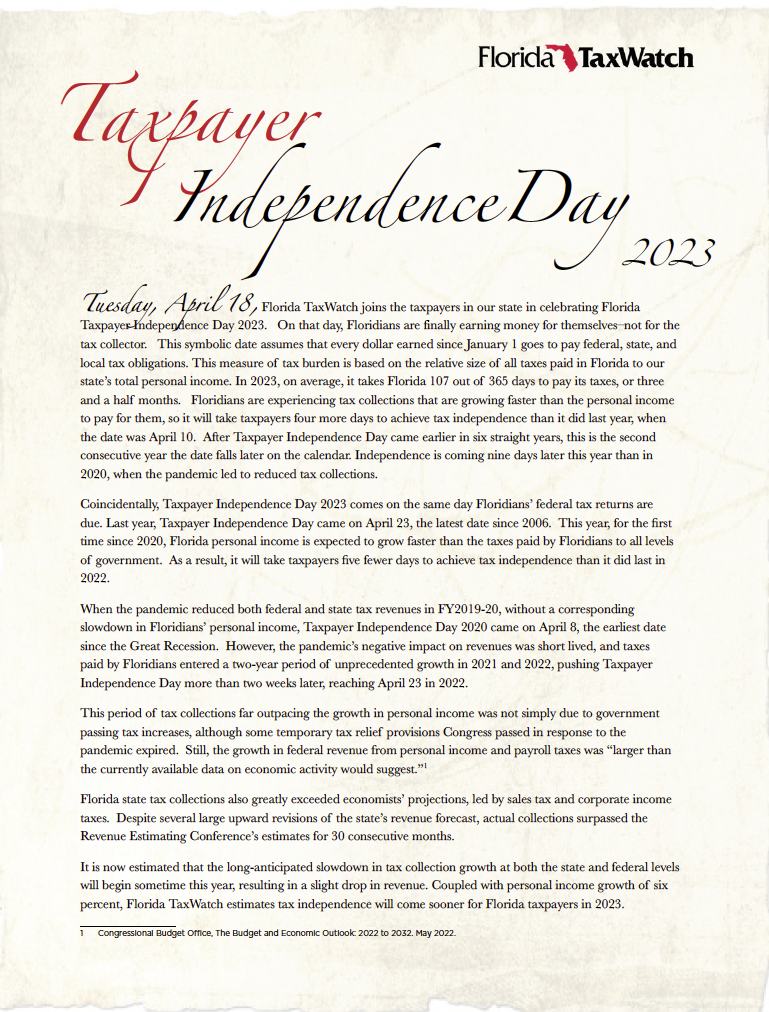Taxpayer Independence Day 2023
 Coincidentally, Taxpayer Independence Day 2023 comes on the same day Floridians’ federal tax returns are due. Last year, Taxpayer Independence Day came on April 23, the latest date since 2006. This year, for the first time since 2020, Florida personal income is expected to grow faster than the taxes paid by Floridians to all levels of government. As a result, it will take taxpayers five fewer days to achieve tax independence than it did last in 2022.
Coincidentally, Taxpayer Independence Day 2023 comes on the same day Floridians’ federal tax returns are due. Last year, Taxpayer Independence Day came on April 23, the latest date since 2006. This year, for the first time since 2020, Florida personal income is expected to grow faster than the taxes paid by Floridians to all levels of government. As a result, it will take taxpayers five fewer days to achieve tax independence than it did last in 2022.
When the pandemic reduced both federal and state tax revenues in FY2019-20, without a corresponding slowdown in Floridians’ personal income, Taxpayer Independence Day 2020 came on April 8, the earliest date since the Great Recession. However, the pandemic’s negative impact on revenues was short lived, and taxes paid by Floridians entered a two-year period of unprecedented growth in 2021 and 2022, pushing Taxpayer Independence Day more than two weeks later, reaching April 23 in 2022.
This period of tax collections far outpacing the growth in personal income was not simply due to government passing tax increases, although some temporary tax relief provisions Congress passed in response to the pandemic expired. Still, the growth in federal revenue from personal income and payroll taxes was “larger than the currently available data on economic activity would suggest.”
Florida state tax collections also greatly exceeded economists’ projections, led by sales tax and corporate income taxes. Despite several large upward revisions of the state’s revenue forecast, actual collections surpassed the Revenue Estimating Conference’s estimates for 30 consecutive months.
It is now estimated that the long-anticipated slowdown in tax collection growth at both the state and federal levels will begin sometime this year, resulting in a slight drop in revenue. Coupled with personal income growth of six percent, Florida TaxWatch estimates tax independence will come sooner for Florida taxpayers in 2023.